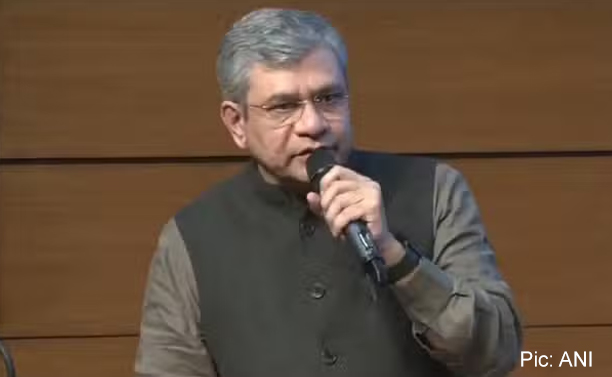
Jotirmoy Roy, New Delhi: The recent cabinet decisions announced by the Modi government stand as a testament to its commitment to fostering a more inclusive, innovative and sustainable India. The initiatives, ranging from technological advancements to academic reforms, reflect a multi-pronged approach to addressing both immediate and long-term national challenges. While these measures are ambitious, they also bring forth critical discussions on their implementation and expected impact.
PAN 2.0 Initiative – A Step Towards Digital Empowerment
The approval of the PAN 2.0 initiative, with an allocated budget of ₹1,435 crore, highlights the government’s commitment to digitization. Featuring enhanced elements like QR codes and a user-friendly online process, the upgrade will be provided at no additional cost. Union Minister Ashwini Vaishnaw assured that data on the new PAN cards would remain fully secure and a grievance redressal mechanism will be established to address concerns efficiently.
PAN cards are critical for financial transactions and tax compliance, especially for the middle class and small businesses. However, the success of this initiative will depend on ensuring that the online process is seamless and accessible to rural and semi-urban populations, who often face challenges with digital literacy and internet connectivity. Speaking to the media, Minister Vaishnaw emphasized the importance of building trust and transparency through a robust grievance redressal framework.
One Nation, One Subscription – Democratising Knowledge
The One Nation, One Subscription (ONOS) scheme is a revolutionary step for India’s academic and research ecosystem. By providing access to 13,000 international journals, the initiative levels the playing field for students and researchers from government institutions. This could significantly boost India’s global academic footprint.
However, questions remain about the inclusivity of this scheme. Will private institutions have access, or will this remain exclusive to government entities? Furthermore, the success of ONOS will hinge on user awareness and the ability of institutions to integrate these resources into their curricula and research methodologies.
Atal Innovation Mission 2.0 – Grassroots Innovation in Local Languages
The emphasis on linguistic inclusivity in AIM 2.0 is a welcome move. By enabling innovation hubs to work in regional languages, the government addresses a major barrier to grassroots innovation. This can bridge the gap between urban and rural innovation ecosystems, fostering entrepreneurship in underrepresented communities.
However, ensuring the quality and consistency of these hubs across diverse regions will be critical. The mission’s focus must extend beyond infrastructure to include mentorship, access to funding and collaboration with industry leaders to nurture scalable innovations.
National Natural Farming Mission – Paving the Way for Sustainable Agriculture
The National Natural Farming Mission (NNFM) represents a commendable effort to promote organic farming practices and reduce dependence on chemical fertilizers. With its potential to improve soil health and lower costs, the initiative aligns with global sustainable agriculture goals.
Yet, the real challenge lies in transforming conventional farming practices and educating farmers on the long-term benefits of natural farming. The government must ensure that the allocated funds are utilized effectively, with a strong focus on training programs, subsidies and market linkages for organic produce.
Hydropower and Rail Projects – Economic Growth and Connectivity
The approval of hydropower projects in Arunachal Pradesh and railway expansions signals a strong push towards energy efficiency and enhanced connectivity. These projects are not just infrastructure upgrades but are poised to stimulate local economies, create employment and reduce logistical inefficiencies.
While these are undoubtedly positive developments, their success will depend on timely execution and minimizing environmental and social disruptions. Transparent planning and regular progress updates can build public trust in these initiatives.
The Road Ahead
The Modi government’s recent decisions reflect a forward-looking vision for India. From strengthening the knowledge economy to promoting sustainable agriculture and advancing digital infrastructure, these measures address a broad spectrum of national priorities.
However, ambition must meet actionable execution. The effectiveness of these initiatives will rely on efficient implementation, inter-departmental coordination and consistent monitoring. As India marches towards its development goals, such bold reforms will require not just government will but also public participation and stakeholder collaboration.
If implemented effectively, these decisions could significantly reshape India’s socio-economic landscape, making the nation more inclusive, innovative and globally competitive. The next challenge lies in ensuring that these ambitious plans translate into measurable outcomes that benefit every Indian.


